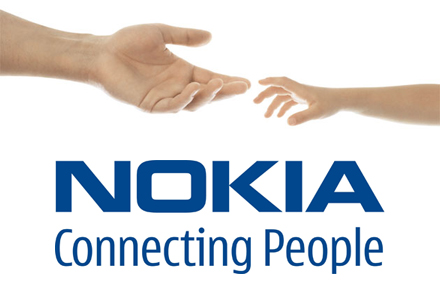Investing
24/7 Wall St. Ten Brands That Will Disappear In 2012
Published:
Last Updated:
 24/7 Wall St. has created a new list of brands that will disappear, which includes Sears (NASDAQ:SHLD), Sony Pictures (NYSE:SNE), American Apparel (NYSE:APP), Nokia (NYSE:NOK), Saab, A&W All-American Foods Restaurants, Soap Opera Digest, Sony Ericsson, MySpace (NYSE:NWS.A), and Kellogg’s Corn Pops. (NYSE:K).
24/7 Wall St. has created a new list of brands that will disappear, which includes Sears (NASDAQ:SHLD), Sony Pictures (NYSE:SNE), American Apparel (NYSE:APP), Nokia (NYSE:NOK), Saab, A&W All-American Foods Restaurants, Soap Opera Digest, Sony Ericsson, MySpace (NYSE:NWS.A), and Kellogg’s Corn Pops. (NYSE:K).
Each year, 24/7 Wall St. regularly compiles a list of brands that are going to disappear in the near-term. Last year’s list proved to be prescient in many instances, predicting the demise of T-Mobile among others. In late May, AT&T (NYSE:T) and Deutsch Telekom announced that AT&T would buy T-Mobile USA for $39 billion. The deal would add 34 million customers to the company and create the country’s largest wireless operator.
Other 201o nominees – including Blockbuster – bit the dust, while companies, such as Dollar Thrifty are on the road to oblivion. Last September, after finally giving in to competition from Netflix and buckling under nearly $1 billion in debt, Blockbuster filed for Chapter 11 bankruptcy protection. In April of this year, Dish Network acquired the company for $320 million. Car rental chain Dollar Thrifty is still entertaining buyout offers from Avis and Hertz. On June 6, the embattled company recommended that its shareholders not accept Hertz’s recent offer, valued at $2.24 billion, or $72 a share. Meanwhile, on June 13th, Avis Budget announced that “it had made progress in its discussion with the Federal Trade Commission regarding its potential acquisition” of the company. Although Dollar Thrifty can remain choosy, a sale is a matter of when, not if.
We also missed the mark on a few companies. Notably, Kia, Moody’s, BP, and Zales appear to be doing better than we expected.
Brands that have stood the test of time for decades are falling by the wayside at an alarming rate. For instance, Pontiac – a major car brand since 1926 – is gone, shut down by a struggling GM. Blockbuster is in the process of dismantling, after it once controlled the VHS and DVD markets. House & Garden folded after 106 years. It succumbed to the advertising downturn, a lot of competition, and the cost of paper and postage. Its demise echoed the 1972 shutdown of what is probably the most famous magazine in history–Life. That was a long time ago, but it serves to demonstrate that no brand is too big to fail if it is overwhelmed by competition, new inventions, costs, or poor management.
This year’s list of The Ten Brands That Will Disappear takes a methodical approach in deciding which brands will walk the plank. The major criteria were as follows: (1) a rapid fall-off in sales and steep losses; (2) disclosures by the parent of the brand that it might go out of business; (3) rapidly rising costs that are extremely unlikely to be recouped through higher prices; (4) companies which are sold; (5) companies that go into bankruptcy; (6) firms that have lost the great majority of their customers; or (7) operations with rapidly withering market share. Each of the ten brands on the list suffer from one or more of these problems. Each of the ten will be gone, based on our definitions, within 18 months.
1. Sony Pictures
Sony has a studio production arm which has nothing to do with its core businesses of consumer electronics and gaming. Sony bought what was Columbia Tri-Star Picture in 1989 for $3.4 billion. This entertainment operation has done poorly recently. Sony’s fiscal year ends in March, and for the period revenue for the group dropped 15% to $7.2 billion and operating income fell by 10% to $466 million. Sony is in trouble. It lost $3.1 billion in its latest fiscal on revenue of $86.5 billion. Sony’s gaming system group is under siege by Microsoft (NASDAQ: MSFT) and Nintendo. Its consumer electronics group faces an overwhelming challenge from Apple. The company’s future prospects have been further damaged by the Japan earthquake and the hack of its large PlayStation Network. CEO Howard Stringer is under pressure to do something to increase the value of Sony’s shares. The only valuable asset with which he can easily part is Columbia which would attract interest from a number of large media operations. Sony Entertainment will disappear with the sale of its assets.
Thank you for reading! Have some feedback for us?
Contact the 24/7 Wall St. editorial team.